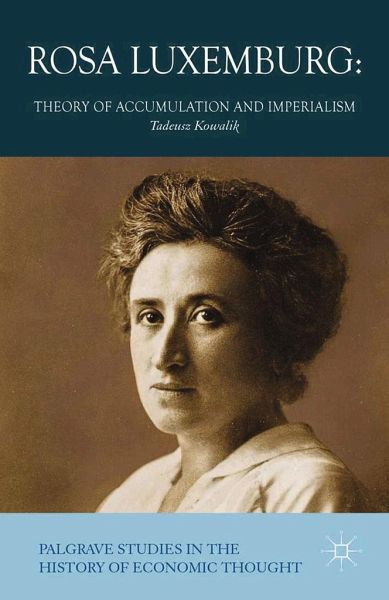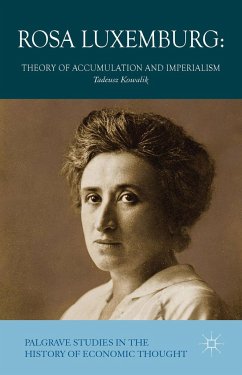
Rosa Luxemburg
Theory of Accumulation and Imperialism
Versandkostenfrei!
Versandfertig in 6-10 Tagen
76,99 €
inkl. MwSt.
Weitere Ausgaben:

PAYBACK Punkte
38 °P sammeln!
The purpose of this translated volume Tadeusz Kowalik's book is to examine Rosa Luxemburg's contribution to economic theory. The essential subject-matter is the dependence of capital accumulation on effective demand, the dependence of economic growth on specific capitalist barriers to growth.














